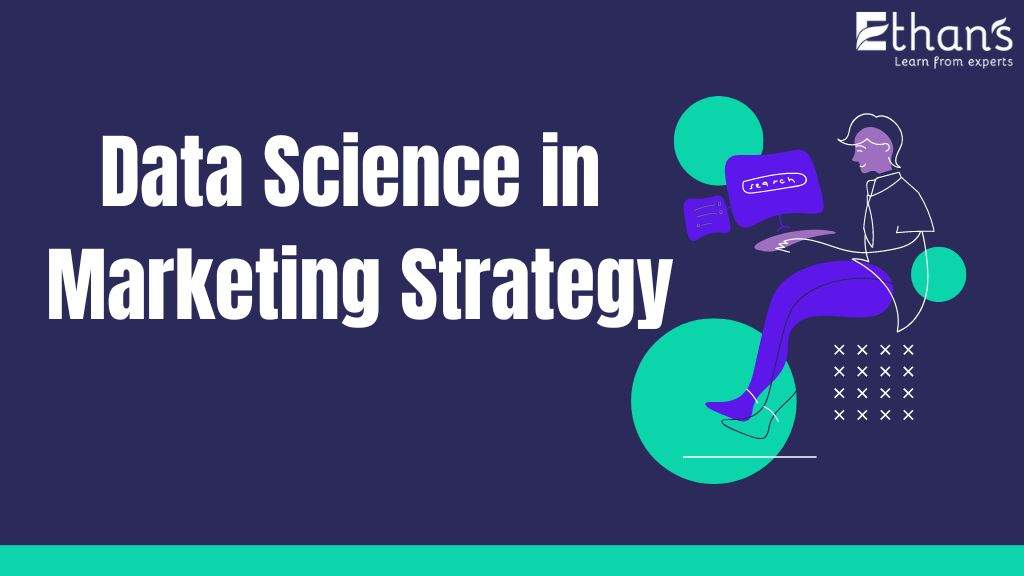Data science has emerged as a powerful tool in today’s digital era, revolutionizing various industries, including marketing. With the advent of big data and advanced analytics techniques, marketers can now make data-driven decisions and develop effective strategies to reach their target audience. In this article, we will explore the significant role that data science plays in shaping marketing strategies. From customer segmentation to personalized marketing campaigns, data science has transformed the way businesses connect with their customers.
In today’s competitive landscape, businesses need to gain a deep understanding of their customers to stay ahead. Data science enables marketers to uncover valuable insights from large volumes of data, empowering them to make informed decisions and develop effective marketing strategies. By utilizing advanced techniques and technologies, marketers can harness the power of data to optimize campaigns, enhance customer experience, and drive business growth.
Understanding Data Science
Data science is an interdisciplinary field that combines statistical analysis, machine learning, and data visualization to extract meaningful insights from data. It involves the collection, processing, and analysis of large datasets to identify patterns, trends, and correlations. Data scientists utilize various tools and algorithms to uncover hidden insights that can be leveraged to drive business strategies.
Importance of Data Science in Marketing Strategy
Data science has become increasingly vital in shaping marketing strategies due to the abundance of data available from multiple sources such as customer interactions, social media, website analytics, and transaction records. By leveraging data science techniques, marketers can gain valuable insights into customer behavior, preferences, and purchasing patterns. This knowledge helps in tailoring marketing efforts and delivering personalized experiences to customers.
Customer Segmentation for Targeted Marketing
One of the key contributions of data science to marketing strategy is customer segmentation. By analyzing demographic, psychographic, and behavioral data, businesses can divide their customer base into distinct groups. This segmentation allows marketers to understand the specific needs and preferences of different customer segments. With this knowledge, they can create targeted marketing campaigns that resonate with each segment, increasing the effectiveness of their efforts.
Predictive Analytics for Customer Behavior Analysis
Data science enables marketers to predict customer behavior using predictive analytics techniques. By analyzing historical data, marketers can identify patterns and trends that help in understanding customer preferences and predicting future actions. This predictive insight allows businesses to proactively target customers with personalized offers, recommendations, and advertisements, improving the overall customer experience.
Personalized Marketing Campaigns
Personalization is a key aspect of modern marketing strategies, and data science plays a vital role in achieving this. By leveraging customer data, such as browsing history, purchase patterns, and demographic information, marketers can create highly personalized campaigns. Personalization not only improves customer engagement but also increases conversion rates and customer loyalty.
Improving Customer Experience with Data Science
Data science helps businesses enhance the overall customer experience by identifying pain points and areas of improvement. Through data analysis, marketers can gain insights into customer preferences, satisfaction levels, and sentiment analysis. This information allows businesses to optimize their products, services, and customer support to meet customer expectations effectively.
Real-time Data Analysis for Agile Marketing
In today’s fast-paced digital landscape, real-time data analysis is crucial for agile marketing. Data science enables marketers to monitor and analyze real-time data from various sources, such as social media and website analytics. By continuously tracking customer interactions and campaign performance, businesses can make data-driven decisions on the fly, optimizing marketing efforts and maximizing ROI.
Measuring Marketing Effectiveness
Data science provides marketers with the tools to measure the effectiveness of their marketing campaigns accurately. Through advanced analytics and attribution modeling, marketers can determine the impact of different marketing channels, campaigns, and touchpoints on customer conversions. This insight helps in allocating resources effectively and optimizing marketing spend.
Leveraging Social Media Data
Social media platforms generate vast amounts of data, including customer sentiments, preferences, and interactions. Data science allows marketers to extract valuable insights from social media data and leverage them to inform marketing strategies. By analyzing social media trends and sentiment analysis, businesses can identify opportunities, engage with customers, and address their concerns promptly.
Ethical Considerations in Data-driven Marketing
While data science offers immense opportunities for marketers, it also raises ethical considerations. Businesses must ensure the responsible use of customer data, respecting privacy regulations and addressing concerns about data security. Transparency and consent should be prioritized to maintain trust with customers.
Future of Data Science in Marketing
As technology continues to evolve, data science will play an even more significant role in marketing strategies. Advancements in artificial intelligence, machine learning, and natural language processing will enable marketers to gain deeper insights and deliver hyper-personalized experiences to customers. The integration of data science with emerging technologies will drive innovation in marketing and revolutionize customer engagement.
Conclusion
Data science has transformed marketing strategy by enabling businesses to harness the power of data for informed decision-making. From customer segmentation to personalized campaigns and real-time data analysis, data science empowers marketers to optimize their efforts and enhance customer experiences. As data science continues to evolve, marketers must embrace its potential and leverage it to stay competitive in the dynamic digital landscape.





